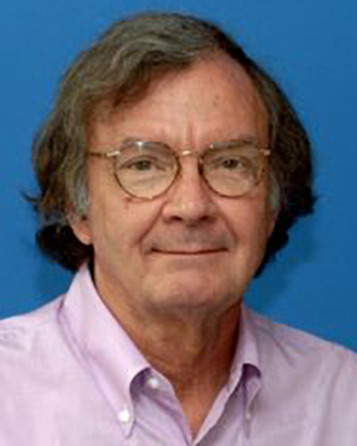PTYS/LPL Graduate Students

Tobias Owen
PTYS Alumnus
Tobias (Toby) C. Owen died on March 4, 2017, in Sacramento, California, where he had been living since his retirement from the University of Hawaii’s Institute for Astronomy in 2012. Owen’s career as a planetary scientist started at the beginning of the exploration of the solar system with spacecraft, and he was actively involved in the Juno mission at the end.
Owen grew up in Denver, Colorado, and Santa Fe, New Mexico. He developed an interest in astronomy at an early age and went on to the University of Chicago to earn his B.S. and M.S. degrees in physics. He then enrolled in the newly formed Lunar and Planetary Laboratory (LPL) at the University of Arizona, becoming one of the first students of Gerard Kuiper, and obtaining his Ph.D. in 1965 on spectroscopic studies of Mars, Jupiter, and Saturn. Owen joined the faculty at the State University of New York (SUNY) at Stony Brook, where he was a professor for many years, and then joined the faculty at the University of Hawaii, where he was affiliated until his passing.
Owen’s earliest work was in spectroscopy of the giant planets, and this interest quickly broadened to encompass all aspects of the origin and evolution of planetary atmospheres. With a special interest in isotopic abundances, he pursued and promoted a wide range of observational and theoretical investigations toward understanding the origins of all the planets and small bodies of the solar system. As one of the world’s leading planetary scientists, he was an active participant in a great number of missions, including Apollo 15 and 16, Viking, Voyager, Galileo, Rosetta, Juno, and Cassini-Huygens. He played a leading role in the development of the Cassini-Huygens mission as a joint project of NASA and ESA, and was called upon frequently to promote this and other missions to funding agencies in Europe as well as to NASA. Owen had close ties with European colleagues, notably in France, where he inspired a vigorous planetary group at the Paris Observatory.
Along with his scientific endeavors, Owen collaborated with with Frank Drake and Carl Sagan to initiate an effort in 1968 to form a specialized society in planetary studies. Acting on a suggestion from Juan Oro, and with the support of several planetary specialists at Kitt Peak National Observatory, their efforts ultimately led to the formation of the AAS Division of Planetary Sciences (DPS).
With the passing of Owen, science has lost a great talent, a valued colleague, and to many in the U.S. and abroad, a close friend. He will be remembered as a man of the world, unfailingly generous and modest, and a great scientist. He inspired all of his many colleagues with his enthusiasm for all aspects of planetary science, including the big questions of the origin of the solar system and of life in the universe. Among the many honors and accolades he received, Owen was awarded the Gerard P. Kuiper Prize of the DPS in 2009.
— Portions of text courtesy of the Institute for Astronomy, University of Hawaii, and the Division of Planetary Sciences
Last updated:

